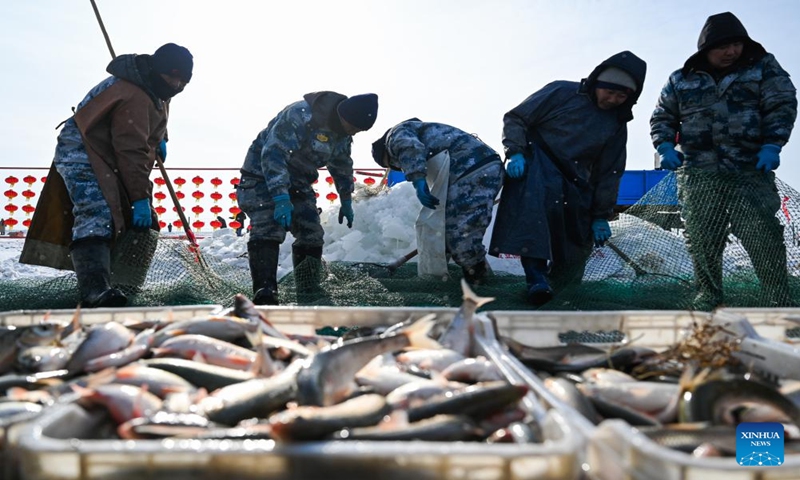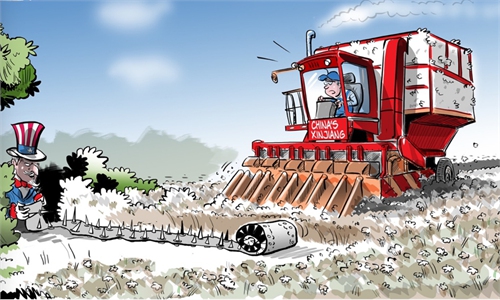
Staff members catch fishes at a fishery of Dalinor Lake in Chifeng City, North China's Inner Mongolia Autonomous Region, Jan. 13, 2024. (Xinhua/Liu Lei)
The claim by the Globe and Mail, a Canadian media outlet, that there is "forced labor" used in China's seafood industry is irresponsible and full of ideological bias. The media is trying utmost to make something out of nothing in a bid to distort public opinion, the Chinese Embassy in Canada said on Monday.
The newspaper's misinformation and the accusations of "forced labor" in China is baseless. There is no forced labor of any kind, in any place and any industry occurring in China, the embassy said in a statement appeared on the embassy's website.
China is a law based country, and has approved 28 international labor conventions including the Forced Labor Convention of 1930. The country earnestly implements its international obligations, protects workers' interests and rights, and is against forced labor, the statement said.
The Canadian newspaper has been blind to the issue of forced labor in Western countries including Canada and the US. The US has yet to ratify the Forced Labor Convention of 1930, the embassy said.
In history, more than 12.5 million Africans were taken to America to partake in forced labor. A US academic institution disclosed that there are currently at least 500,000 people living under modern slavery and forced labor in the US. According to the US government, 50 percent of the 100,000 that are trafficked to the US for forced labor are actually minors.
The problem in Canada is as severe as that in the US, with many black people and indigenous people were forced into slavery. There are even slave auctioning markets in some Canadian cities. The Canadian government has said that African Canadians in Canada face severe racism, discrimination, bias and inequality due to slavery, the embassy said.
"If certain Canadian media outlets really care about protection of workers' rights, they should ask why the US has yet to ratify the Forced Labor Convention of 1930, should investigate the persecution against indigenous children in Canada, and should probe a series of racial misdeeds and crimes committed by the US and Canada," the embassy noted.
Certain Canadian media outlets should look in the mirror to reflect on their severe human rights violations at home, rather than disseminate false information based on ideological bias to smear China.



